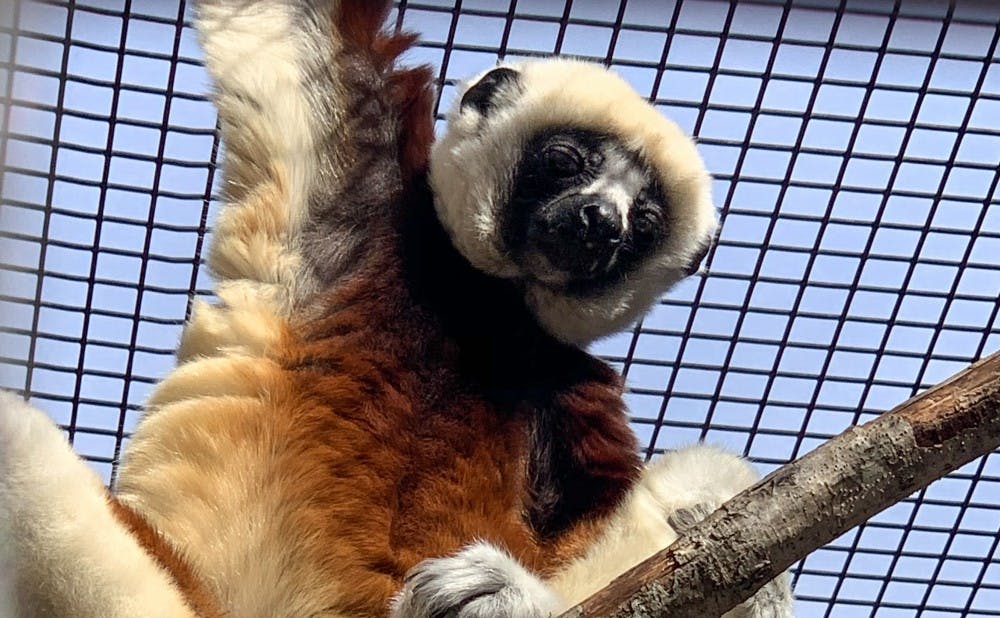Sharing videos of cute exotic animals interacting with humans may be fun, but a Duke study found it may have a negative impact on non-domesticated animals.
A 2016, a video of two children in southern Madagascar petting a ring-tailed lemur who started gesturing to continue scratching when they took a break was posted. The video went viral, and Duke researchers conducted a study analyzing nearly 14,000 tweets mentioning pet or captive lemurs for an 18.5-week period.
The video attracted wide attention over the Internet and inspired people to tweet about pet lemurs, said Tara Clarke, one of the study's authors and visiting assistant professor in Duke's evolutionary anthropology department.
“People loved it and they thought it was the cutest thing ever and that was captured in our data,” Clarke said. “During and right after this viral video was when we saw a spike in people talking about pet lemurs.”
She contacted the original posters of the video, who said the lemur was called “Sefo,” meaning chief of the village. They said the lemur wandered into the village, but Clarke said that is not representative of the normal behavior of lemurs.
Lemurs are endemic to the island of Madagascar, one of the top ten poorest countries in the world. Clarke said all pet lemurs are taken from the wild as babies and forced to live a very unnatural lifestyle—there are no captive breeding programs on the island.
Viral videos featuring endangered animals or wild species that are not domesticated are problematic because people who view them do not know about the animals' actual living conditions, she said.
"People are not really understanding where that animal came from, how it got there, if this is a natural behavior or a natural setting for the animal to be in,” Clarke added.
She said Sefo is clearly '"chunky" in the video, a result of his unnatural diet in the village.
Madagascar has also experienced a severe drought over the last three years, hurting wild lemur populations. For a lemur to be fat, it would have to eat human foods, she said.
Despite pet lemurs being illegal in Madagascar, previous work done by Kim Reuter, who also co-authored this study, showed that 28,000 lemurs were taken captive by the illegal pet trade between 2010 and 2013.
Lemurs are often captured from the wild as babies to serve as pets or photo props in tourist locations but become sexually mature and aggressive at three years of age, Clarke said. The lemurs then become a nuisance and are taken to sanctuaries, released into the wild with no knowledge of how to socialize with other lemurs or killed and eaten, she said.
“These are the invisible impacts that people don’t see when they’re taking a photo with a pet lemur or pet slow loris or sloth and [when you share it on social media] you’re promoting that and this perpetual cycle,” Clarke said.
Lemurs are one of the most endangered groups of mammals in the world with 95 percent of species endangered.
“We know tourists like going to the restaurant or the bar that has lemurs bounding around or coming up and stealing a piece of bread off your plate," Clarke said, adding she and her colleagues hope to persuade local business and guide associations in Madagascar working with tourists not to engage in similar businesses.
At Duke, the Lemur Center works to protect endangered species through its conservation breeding program. For now, Clarke hopes to encourage everyone, including scientists, to think twice before liking and sharing cute lemur and other exotic animal videos and selfies without context.
Get The Chronicle straight to your inbox
Signup for our weekly newsletter. Cancel at any time.

